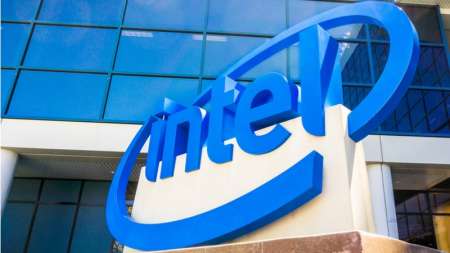Yesterday, the Food and Drug Administration (FDA) announced that it would be taking steps towards considering a new regulatory framework tailored to promote developing safe and effective medical devices that use artificial intelligence algorithms. […]
On Thursday, the Defense Advanced Research Projects Agency (DARPA) announced that it is going to fund research into changing the way that artificial intelligence learns language. […]
The White House launched a new online portal–AI.gov–today to outline the Trump administration’s national artificial intelligence (AI) initiatives in a consolidated website. […]
Rep. William Hurd, R-Texas, stressed at IBM’s Think Gov event today that America needs to lead the world in developing 5G wireless networks and artificial intelligence (AI) capabilities, especially with China on the rise as a voracious international competitor, and said successful development and application of the two technologies are inextricably linked. […]
Representatives from the Defense Department (DoD) presented the department’s artificial intelligence (AI) program initiatives and need for collaboration with the private sector to accomplish them in a hearing before the Senate Armed Services Committee today. […]
Federal and private-sector officials discussed the benefits of integrating artificial intelligence (AI) technologies into Federal agency operations during a panel discussion at this weekend’s Dell Experience at the South by Southwest (SXSW) Conference in Austin, Texas, as well as ethical and technical challenges that come with developing AI applications. […]
In response to the Trump administration’s American AI Initiative, Intel released its recommendations for a national strategy for artificial intelligence that hashes out the goals and actions needed to advance the AI industry. […]
Keeping up with hackers is no small task, particularly since some attacks can be sustained in near-perpetuity. No doubt, securing cyberspace is a daunting responsibility. But focusing on security and using emerging technologies can help us meet the challenges. In particular, when the cyber security personnel of cloud providers and cloud customers work closely together, […]
Google urged governments to avoid excessive regulation of artificial intelligence (AI), instead suggesting “international standards and norms” in key areas in a white paper released last week. […]
The Department of Defense (DoD) is seeking Rapid Innovation Fund (RIF) applications for fiscal year 2019, according to a broad agency announcement released Friday. […]
In a December report, the Department of Defense (DoD) assessed the global expansion by China and what it could mean for the United States’ future defense capabilities. […]
A panel of Federal government artificial intelligence experts spoke on the importance of AI, ethical concerns, and use cases at the CXO Tech Forum on AI and Big Data in Government on Wednesday. […]
The benefits of Software Defined Everything (SDE) – in which a physical infrastructure is virtualized and delivered as services on demand – will change the way we design, build, and test new applications. In a virtual environment, operational costs drop precipitously as the pace of innovation accelerates. Containerization – a way to virtually run separate […]
The Department of Commerce’s Bureau of Industry and Security (BIS) issued an advanced notice of proposed rulemaking on Nov. 19 seeking public comment on “criteria for identifying emerging technologies” that are essential to U.S. national security and that may be included in possible future export control regulations. […]
Tech giant Intel today unveiled its proposal for a national data privacy law that aims to strengthen personal data privacy rules as a necessary ingredient for wide public acceptance of artificial intelligence and other emerging data technologies down the road. […]
Department of Justice Chief Technology Officer Ron Bewtra stressed the need for modernization and human-centered design to help Federal IT adjust to disruptive technologies while better serving agency missions and those who depend on them. […]
A team of Federal and industry experts well versed in establishing relationships between the government and private sector spoke Wednesday at NVIDIA’s GTC Conference about how to crack the Federal marketplace with new and emerging technology. […]
Federal CIO Suzette Kent said today that the advancement of artificial intelligence technologies is of primary importance to the Federal government, as agencies begin to determine their AI priorities and a picture of government-wide investment begins to form. […]
A Senate Commerce, Science, and Transportation Committee staffer suggested Tuesday that the many and sometimes disparate elements of industry and academia that make up what could be considered the artificial intelligence (AI) sector should take action to present a more united front to Congress if they hope to convince legislators to create laws that would benefit the sector. […]
As fake news threatens to eat the world, a number of government, academic, and private organizations have launched a range of projects to combat its spread, including artificial intelligence systems that can flag fake news by calling out its content. […]
Current and retired Defense Department IT officials today discussed cost and opportunity implications of further cloud adoption by the military and potential payoffs including acceleration of artificial intelligence (AI) technologies. […]
Artificial intelligence (AI) machines can out-think humans when it comes to a lot of complex, fine-grained tasks, such as detecting signs of cancer more accurately than doctors can, or finding exoplanets based on “dimming effect” data from distant solar systems. But what they don’t have is good old common sense, the ability to apply its knowledge, and the experience to various tasks humans can do from childhood. […]
Rep Will Hurd, R-Texas, chairman of the House IT subcommittee, questioned today whether Google’s decision in June to not renew a contract with the Defense Department for development of artificial intelligence technologies was influenced by what the congressman characterized as possible “influence operations” by the Chinese government. […]
The Defense Department (DoD) has renewed its focus on equipping the warfighter with the best technology. Alongside new changes, they’re proceeding at machine speed to streamline that process. IT innovation through audacious experimentation has been a DoD hallmark throughout the years, and has led to storied research and development (R&D) accomplishments. But on that path, some Pentagon projects have gone amiss. […]
LaVerne Council, national managing principal of Enterprise Technology Strategy and Innovation at Grant Thornton, spoke today at the Infor Government Forum about the future opportunities afforded by artificial intelligence (AI), and sought along the way to debunk myths that have inspired some apprehension from the public about the emerging technology. […]
Reps. Will Hurd, R-Texas, and Robin Kelly, D-Ill., today released a new white paper on artificial intelligence (AI) that urges the Federal government to increase its engagement with the technology. The paper focuses its attention on four key issue areas–workforce, privacy, biases, and malicious use of AI–and provides concrete recommendations for each area. […]
In the quest to keep the upper hand in the burgeoning field of artificial intelligence (AI), the Pentagon’s top research arm just put $2 billion in chips on the table to spur development of the third wave of AI technologies. […]
The intelligence community has adjusted its strategy for the “second epoch” of the Intelligence Community Information Technology Enterprise program (IC ITE) to adjust to agency needs, reduce duplication, and use artificial intelligence to free up resources for analysts, said La’Naia Jones, deputy CIO for the intelligence community at the Office of the Director of National Intelligence (ODNI). […]
The Defense Advanced Research Projects Agency (DARPA) kicked off its new ‘AI Next’ campaign with a multi-year commitment to spend more than $2 billion on new and existing artificial intelligence programs to help create machines that can adapt to changing situations. […]
The FBI wants to use artificial intelligence to add a new layer to its Next Generation Identification (NGI) system, specifically to counteract the increasingly common practice of criminals altering their fingerprints. […]
























